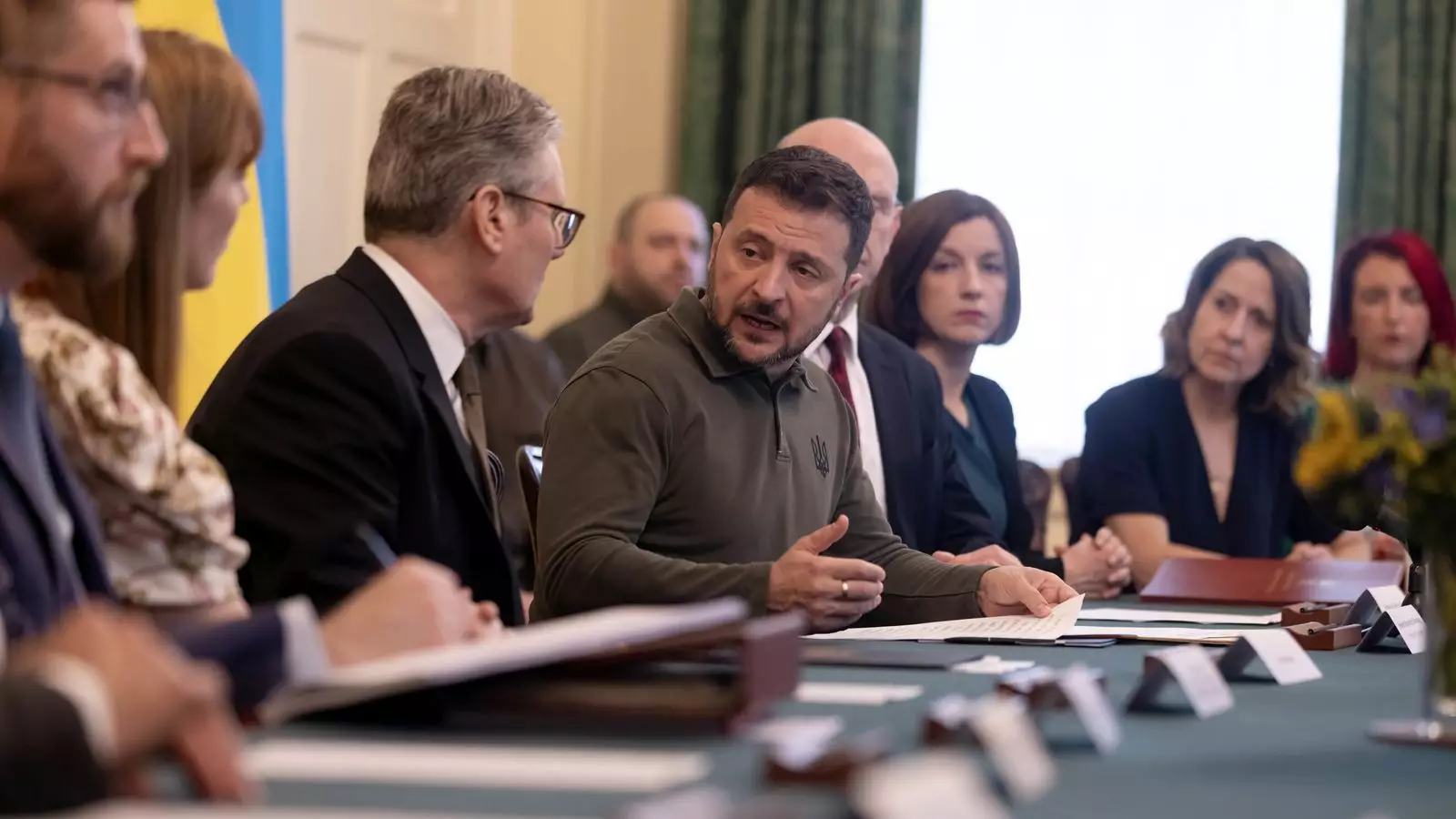In an increasingly precarious global landscape, the debates surrounding defense spending in the United Kingdom have intensified, underscoring a palpable anxiety among policymakers regarding national security. As multiple challenges loom, from geopolitical instability to heightened military threats, it is essential for the UK government to rethink its fiscal allocations towards defense. Recent discussions featuring Chancellor Rachel Reeves, Business Secretary Jonathan Reynolds, and opposition leader Sir Keir Starmer signal a growing consensus in the government regarding the need for elevated expenditure in this sector.
Frequent reports indicate a discord regarding the specifics of defense budgeting, particularly in light of pressures from military leaders advocating for a significant rise. While the current target for UK defense spending is set at 2.5% of GDP, the actual spend hovers around 2.3%, leaving a sensitive gap that needs immediate attention. Business Secretary Reynolds’s comments reflect a broader recognition of the precarious global situation, suggesting that an expansion of the defense budget is not only required but necessary for the nation’s prosperity.
However, the internal dynamics of the government appear complex and fraught. Reynolds has publicly dismissed rumors that Prime Minister Starmer may readily override the Chancellor’s decisions, emphasizing that all cabinet members are aligned in recognizing the need for enhanced defense funding. Despite this assertion, internal leaks suggest a fracture within the government’s ranks concerning the extent of the proposed increase—a muddle that could undermine coherent action in an urgent matter.
An article from The Sunday Times illuminated the rising influence of military chiefs, specifically noting Admiral Sir Tony Radakin’s consultations with Sir Keir Starmer on defense strategies. While policymakers like Chancellor Reeves might resist immediate increases in the defense budget owing to fiscal constraints, military leaders are advocating for a more aggressive financing approach, with demands escalating towards 2.65% of GDP. Such discrepancies in priorities reflect the tenuous balance the government must strike between fiscal responsibility and national security — a choice that carries profound implications for the UK’s global standing.
The ongoing situation in Ukraine serves as a vivid backdrop to these domestic considerations. As the US pivots its focus toward potential peace negotiations, UK leaders are acutely aware of the vital role the nation must play within NATO. The stark reality that American attention on European security concerns may wane underscores the urgency for enhanced domestic defense capabilities. Observers like Rachel Ellehuus from the Royal United Services Institute foresee repercussions for European defense in light of shifting priorities in Washington, advocating for immediate action to bolster the UK’s military apparatus before it becomes too late.
Moreover, the anticipated emergency meeting of European leaders in Paris underlines the strategic importance of a unified European response to threats like the one posed by Russia. As discussions progress, it becomes increasingly clear that the UK must adopt a proactive stance in shaping European security dynamics, thereby reinforcing the argument for increased investment in diverse military capabilities that encompass conventional forces and emerging technologies.
The Future of UK Defense Policy
As Sir Keir Starmer looks toward an upcoming meeting with US President Donald Trump, the messages he brings from critical discussions in Paris could further illuminate the trajectory of UK defense policy. It is imperative that the UK take a leadership role in ensuring that European nations commit to adequate defense spending. The notion of a “once-in-a-generation moment” for transatlantic relations emphasizes the potential for a revitalized collaboration that safeguards collective security interests.
The road ahead for UK defense spending is riddled with challenges but also ripe with potential. As the chancellor prepares for an upcoming spending review, there is hope that a more comprehensive approach to defense investment is on the horizon. By consolidating their efforts and aligning with military leadership, the government may not only secure its national prosperity but also contribute to a more resilient and unified NATO. The imperative to act is clear: the time for critical reassessment of defense spending is now; our global and national security depends on it.

